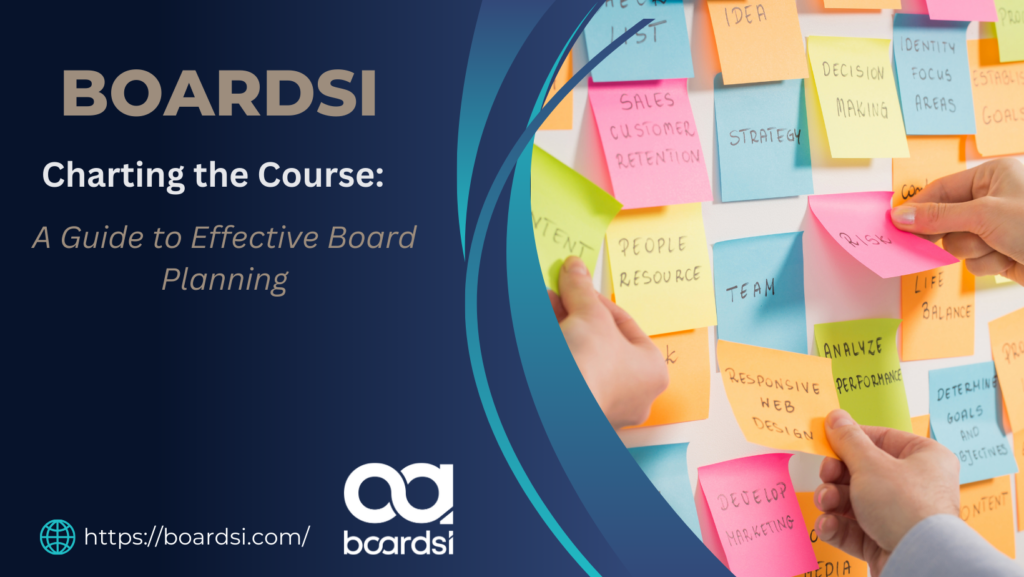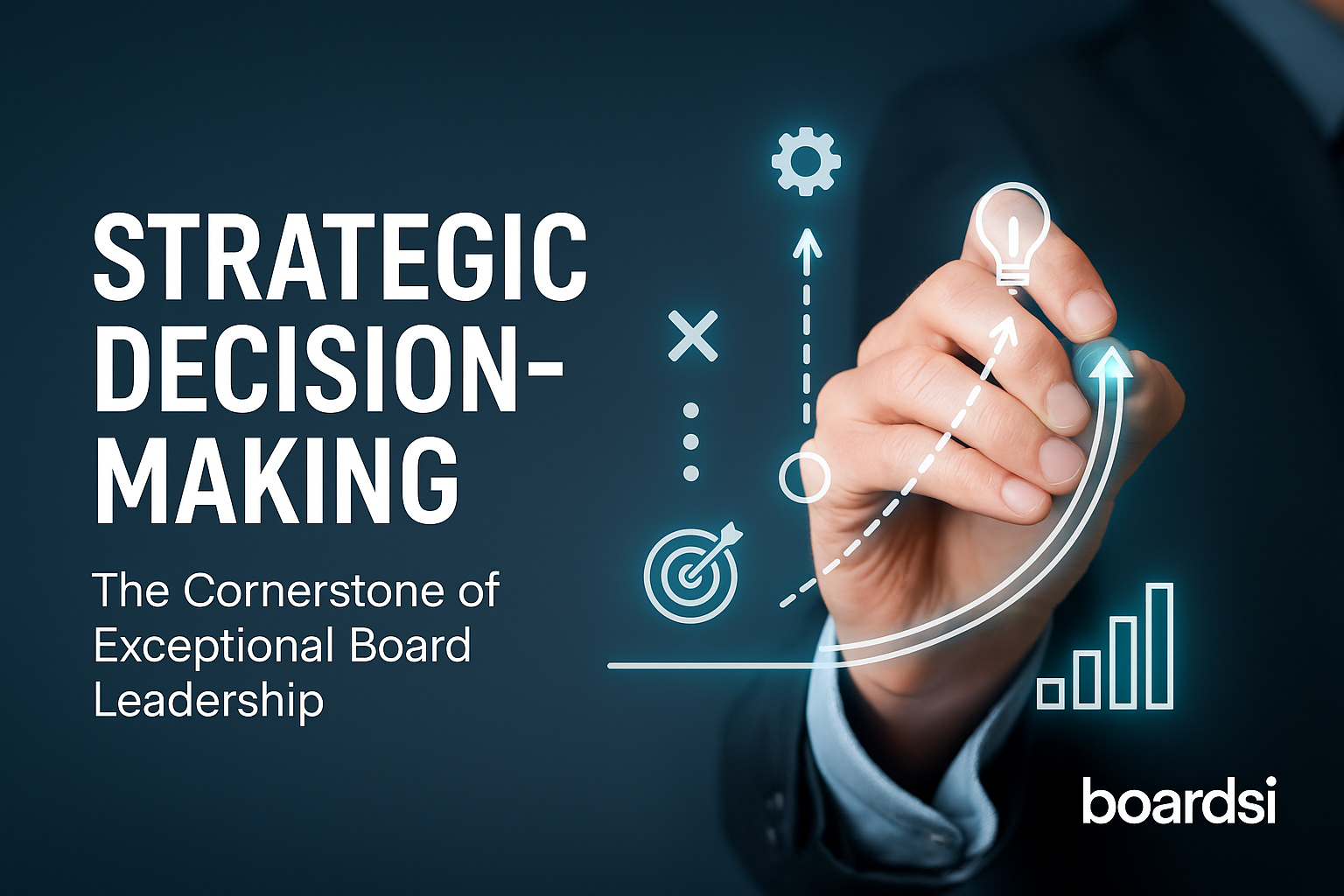In today’s fast-paced business landscape, effective board planning is crucial for organizational success. Well-defined plans ensure boards can proactively address challenges, capitalize on opportunities, and guide the organization towards its long-term goals. This article explores key elements of effective board planning, best practices for creating a winning plan, and how Boardsi can be your partner in navigating the board planning process.
Why Effective Board Planning Matters
A strong board plan serves as a roadmap for the board’s activities throughout the year. Here are some key benefits of effective board planning:
- Strategic Focus: A defined plan keeps the board focused on the organization’s long-term strategy, ensuring all discussions and decisions are aligned with overall goals.
- Enhanced Efficiency: Effective planning avoids wasted time and resources during board meetings by ensuring a clear agenda and focused discussions.
- Proactive Approach: A well-defined plan allows the board to anticipate potential challenges and opportunities, enabling proactive decision-making.
- Improved Communication & Collaboration: The planning process fosters communication and collaboration among board members, leading to better decision-making.
- Increased Accountability: A clear plan establishes expectations for board members, promoting accountability and a results-oriented approach.
Elements of a Winning Board Plan
An effective board plan should encompass several key elements:
- Strategic Alignment: The plan should clearly connect with the organization’s overall strategic goals and objectives.
- Key Initiatives & Priorities: Identify the most critical initiatives and priorities that the board will focus on throughout the year.
- Meeting Schedule & Agenda Setting: Define the board meeting schedule and establish clear agendas for each meeting.
- Committee Structure & Responsibilities: Outline the formation and responsibilities of any board committees.
- Performance Measurement & Reporting: Establish metrics for measuring progress towards goals and a reporting structure for the board.
- Risk Management & Oversight: Integrate risk identification and mitigation strategies into the overall plan.
- Board Development & Training: Allocate resources for continuous board development and member training.
Best Practices for Effective Board Planning
Here are some best practices to follow when creating your board plan:
- Involve All Board Members: Engage all board members in the planning process to foster a sense of ownership and accountability.
- Gather Input from Stakeholders: Consider input from key stakeholders, such as management and executives, to ensure the plan addresses relevant issues.
- Regular Review & Updates: Schedule regular reviews of the board plan to ensure it remains aligned with the organization’s evolving needs.
- Utilize Board Management Software: Leverage board management software to streamline the planning process and improve communication and collaboration.
Boardsi: Your Partner in Effective Board Planning
At Boardsi, we understand the importance of effective board planning. We offer a comprehensive suite of services to support your board throughout the planning process, including:
- Board Planning Facilitation: We guide boards through the planning process, ensuring a clear and actionable plan is developed.
- Board Development Programs: We offer programs to equip board members with the skills and knowledge needed for strategic planning.
- Board Management Software Solutions: We provide access to user-friendly board management software to streamline planning and collaboration.
- Benchmarking & Best Practices Guidance: We share industry benchmarks and best practices for effective board planning.
Taking Control of Your Board’s Future
By implementing effective board planning practices and leveraging the expertise of Boardsi, boards can gain greater control over their organization’s future. A well-defined plan sets the stage for proactive decision-making, improved performance, and long-term organizational success.
Ready to chart a course for success with a winning board plan? Contact Boardsi today and explore how we can help your board achieve its full potential.









